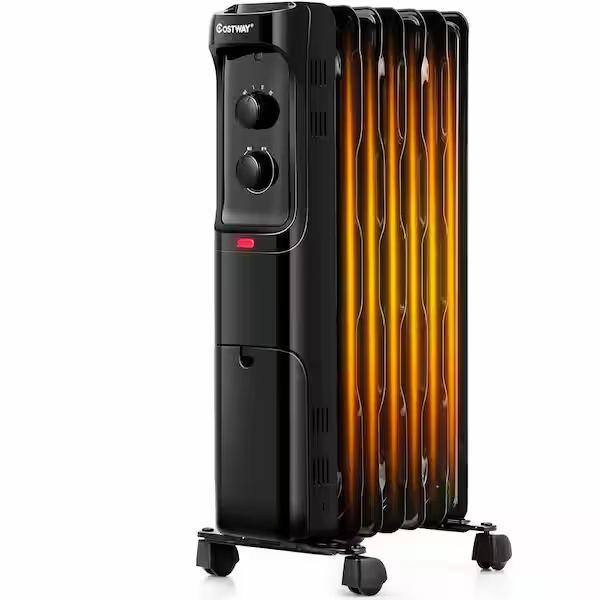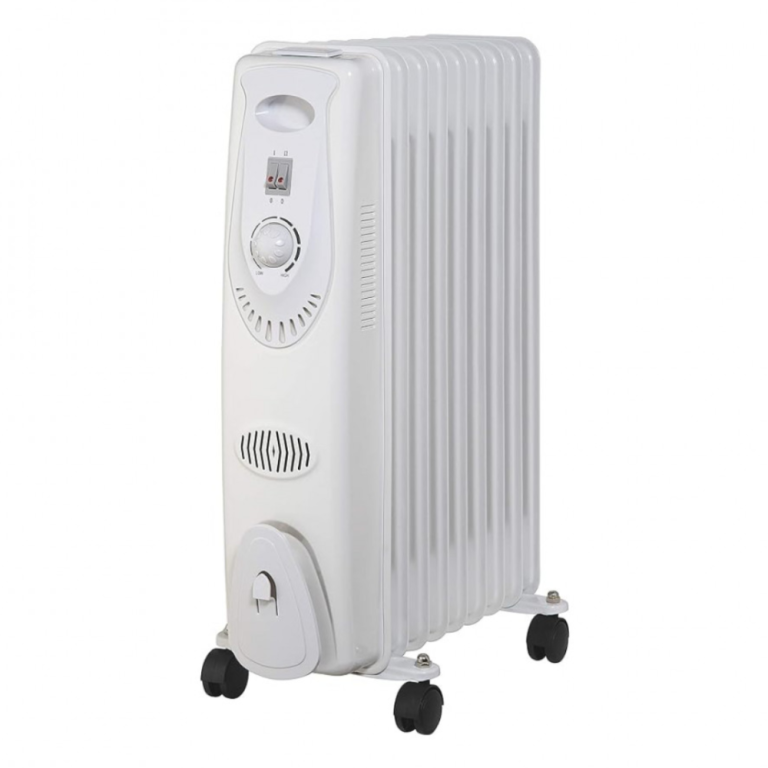When winter strikes and temperatures drop, heating your home becomes a top priority. Two popular options for supplemental heating are radiator heater vs space heater. Understanding their differences, performance characteristics, and costs can help you make an informed decision. This article will provide a comprehensive comparison between radiator heater vs space heater, focusing on performance, energy efficiency, safety, and overall costs.
Introduction to Heating Options
Understanding Radiator Heaters
Radiator heaters, often referred to as oil-filled radiators, utilize a system of pipes filled with oil or water to produce heat. They work by heating the liquid inside, which then radiates warmth throughout the room. This type of heater is usually connected to a central heating system or can be standalone units. They have gained popularity for their efficiency and ability to maintain a consistent temperature over long periods.
Exploring Space Heaters
Space heaters, on the other hand, are portable heating devices designed to warm up a small area quickly. They can be electric, gas, or propane-powered and come in various styles, including ceramic, infrared, or convection models. Space heaters are favored for their immediate heat output, making them ideal for quick warmth in particular rooms or areas of the home.

Performance Comparison
Heat Output and Distribution
The performance of any heating device largely depends on how effectively it can output heat. Radiator heaters excel in providing consistent, even heat. Once they reach the desired temperature, they can maintain warmth for an extended period, even after being turned off. This makes them suitable for longer durations of use, such as overnight heating.
In contrast, space heaters often function on an “on and off” basis. They rapidly warm the air around them, making them excellent for quick heat but less effective for prolonged warmth. Depending on the model, some space heaters can heat up a room in a matter of minutes, but once turned off, the heat dissipates quickly. Therefore, while space heaters provide immediate relief from the cold, their heat may not last as long as that from a radiator heater.
Energy Efficiency
Energy efficiency is another crucial aspect of heater performance. Radiator heaters are typically more efficient for larger spaces. Since they use a liquid medium to store heat, they continue to radiate warmth even when turned off, using less overall energy. This ability to maintain temperature makes them energy-efficient in the long run.
However, space heaters, especially smaller units, can be more efficient in terms of heating specific areas. If you only need to warm a single room or a small space, using a space heater may save energy compared to heating an entire home. When choosing between the two, the specifics of your heating needs will dictate what is more energy efficient for you.

Cost Considerations
Initial Purchase Cost
When comparing costs, the initial purchase price comes into play. Generally, space heaters tend to be less expensive than radiator heaters. A basic ceramic space heater can start as low as $30, while a good-quality radiator heater can range from $70 to $200, depending on the brand and model. If upfront costs are your primary concern, a space heater might be the more economical choice.
Operating Costs
While initial costs are important, consider operating expenses as well. Radiator heaters, although more expensive initially, can save money in the long run due to their efficient heat retention and lower energy usage. The average cost to operate a radiator heater over time can be significantly lower compared to continually running a space heater, especially if used in larger spaces for extended periods.
When calculating costs, also think about your local energy rates and how often you plan to use the heater. A space heater may be less costly upfront, but its efficiency in heating can lead to higher utility bills over time if used extensively.
Safety Factors
Safety Features in Radiator Heaters
The safety is a critical factor to consider when selecting a heating device. Radiator heaters often come with built-in safety features, such as overheat protection and safety shut-off mechanisms. These features help prevent potential fires or accidents even if the unit is left unattended for some time. Additionally, since they don’t get extremely hot on the outside, the risk of burns is minimized.
Safety Concerns with Space Heaters
Space heaters, while convenient, pose some safety concerns. They can become hot to the touch and might present a fire hazard if placed too close to flammable materials. Proper placement is essential to ensure safety when using a space heater. Many modern models come with safety features like tip-over switches and thermal fuses, but users should remain vigilant and adhere to safety guidelines. Always turn off space heaters when leaving a room or going to sleep to mitigate risks.

Ease of Use and Portability
Portability of Space Heaters
One of the most significant advantages of space heaters is their portability. They are lightweight and often have convenient handles, making them easy to move from room to room. If you’re looking for a quick solution to warm various areas of your home, a space heater is extremely user-friendly. Their compact designs allow them to be used in spaces where larger heating units may not fit, such as bathrooms or small nooks.
Stationary Nature of Radiator Heaters
In contrast, radiator heaters are typically heavier and less portable. Once set up, they are not designed for easy movement, and users often find themselves leaving them in one location. If you want a consistent heat solution for a designated area, this can be fine. However, if you need the ability to move the heater around frequently, the stationary nature of radiator heaters can be a disadvantage.
Environmental Impact
Eco-Friendliness of Radiator Heaters
Radiator heaters often win in terms of eco-friendliness. Many models are designed to have a longer lifespan, reducing waste and the need for frequent replacements. Additionally, because they utilize radiant heat, they can operate efficiently, consuming less energy than other heating sources. This can lead to fewer carbon emissions over time, especially if you are heating larger areas.
Considerations for Space Heaters
When it comes to space heaters, their environmental impact can vary significantly based on energy sources. Electric space heaters may draw from fossil fuel electricity, leading to higher carbon footprints if your local grid doesn’t incorporate renewable sources. Gas or propane space heaters might be better for specific environments but come with their own set of risks and complexities. If environmental concerns are high on your list, consider the overall implications of your heating choice.
Making the Right Choice
Choosing between radiator heater vs space heater depends on various factors, including intended use, space requirements, budget constraints, and safety considerations. Radiator heaters are excellent for those needing prolonged, even warmth in larger spaces, while space heaters are ideal for quick warmth in smaller areas.
By weighing the performance characteristics, initial and operating costs, safety factors, portability, and environmental impacts, you can make a well-informed choice that suits your heating needs. Each heating solution has its advantages and unique features that cater to different situations and preferences.
For instance, if you live in a large space that requires consistent and even heating, a radiator heater might be your best bet. Its ability to maintain warmth over an extended period can significantly enhance your comfort. Many users appreciate the “set it and forget it” nature of radiator heaters. Once you set the thermostat, you can move on to other activities, confident that the room will maintain a comfortable temperature.


